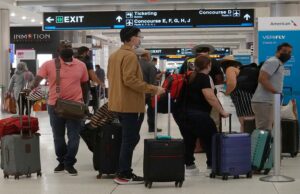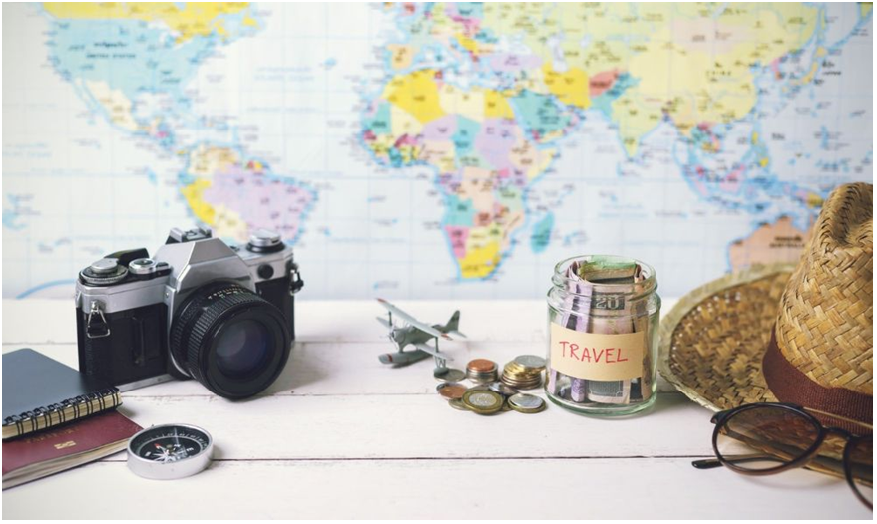Many globetrotters travel to different countries or circumnavigate the globe without booking a return or onward ticket in advance. What risks do they run and how can they remedy them?
or an onward travel ticket?
If many globetrotters have an idea of the duration of their trip, few of them plan to buy their return ticket in advance or even the various tickets that allow them to go from one country to another. They often do not know the exact date of their return, which airline they will choose or even sometimes which will be the last country they will visit. From then on, they decide on the spot and at the last minute on the purchase of their transport ticket (by air, land or sea).
But this practice carries a risk. As these travelers cannot prove the exact date of their departure from the country visited or their return to their country of origin, local authorities or transport companies may cause them problems.
Why is it risky to travel without a return ticket?
The airline or carrier
boarding controlAn airline is (in principle) supposed to check the transport documents of its travellers. In the event that the authorities of the country of destination refuse the traveler’s entry into its territory , the latter will be turned back and the airline will be forced to bring him back to his point of departure. This therefore implies for the airline an additional cost, administrative hassle and the disadvantage of losing a seat on the return flight.
However, few transport companies actually check whether their travelers have a return ticket and they rarely ask their passengers about it. But some airlines (such as those flying to the USA) systematically submit their travelers to a questionnaire before boarding.
In the absence of a return ticket, it is also possible that the traveler will be forced to buy a ticket before being able to board.
Customs or immigration
The authorities of the countries visited want to ensure that the person who enters their territory only stays there for the legally authorized period and that this person leaves the territory within the time allowed. The aim is obviously to avoid illegal immigration. The date of onward travel or return to the country of origin can be proven by a return or onward travel ticket issued by an airline. It is therefore possible that this proof will be requested by the customs or immigration services from any foreign individual arriving by air (or otherwise).
If this proof cannot be provided, the traveler may be blocked at the border or refused entry.
Frequency of checks
According to the experience of the majority of globetrotters that can be read in blogs, forums or specialized travel sites, these checks are frequent but often random (therefore “at the head of the customer”), particularly in certain countries of America, Africa, Mexico and Thailand. In the event of non-compliance, the consequences may prevent or seriously complicate the continuation of the trip.
Travel within the countries of the European Union and – a fortiori – in the Schengen area, undertaken by nationals of these countries does not in principle present this type of problem, given that there is the principle of free movement of persons.
How to avoid or circumvent the risk?
In principle, it is enough to be able to prove that you have a transport ticket (air, land or sea) indicating the date of leaving the country before the maximum duration of authorized stay. When traveling by plane, it is always recommended to be able to present a return ticket issued by an airline, as proof of transport by land is not always accepted.
You can of course try your luck (“at your own risk”) and travel without a return ticket. In this case it is in your interest to remain discreet, not to attract attention and of course to have your passport and boarding ticket in order.
Other tricks are possible such as the presentation of a hotel reservation in another country or a transport ticket from another country, but without guarantee.
Some travelers make false plane tickets (!) and thus manage to deceive the control services. But beware: airlines and customs have increasingly efficient systems that allow you to quickly check the authenticity of the ticket and the reservation of the flight online.
Buying a plane ticket at the last minute remains a possible solution, even if it is a ticket that will not be used later. Many low cost companies offer cheap tickets (check the possibility of cancellation). Sites specializing in the comparison and sale of airline tickets also often offer tickets that can be canceled within 24 hours (eg Orbitz , Onetravel , Expedia , and others).
It’s not just the ticket that counts
It is clear that a denial of boarding or a problem at customs can also be due to other reasons, including the non-compliance of the visa or passport , the absence of compulsory vaccinations , the insolvency of the traveler or his report. Some countries (including Cuba and Russia) also require proof of travel insurance.
In addition, assistance companies assume that all travelers have a return ticket. If this is not the case and during a medical repatriation, the repatriated person risks being charged an amount equivalent to that of the price of a return ticket.





